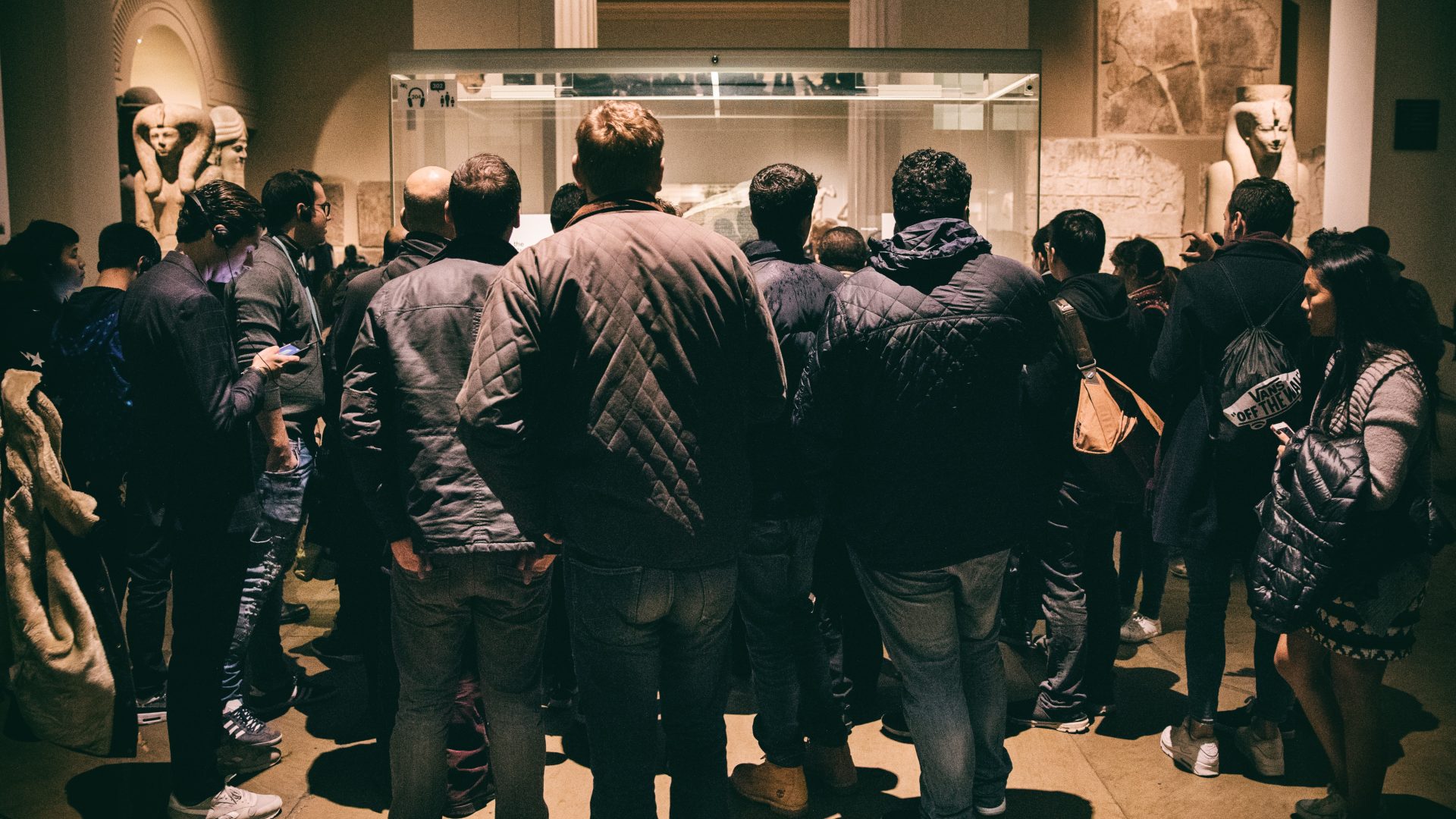
The movement to right historical wrongs and return cultural relics taken by colonizers is building steam. The Rosetta Stone is now one of many artifacts being called to return to its country of origin.


The movement to right historical wrongs and return cultural relics taken by colonizers is building steam. The Rosetta Stone is now one of many artifacts being called to return to its country of origin.
A visitor to the British Museum can see exhibits that span the entire globe and most of our known human history. Classical Greek vases in one room, mummified remains and tools from prehistoric Mesopotamia in the next—creating a tour of humanity’s scope. But, like many other museums and private collections, the British Museum’s right to many of those artifacts is being called into question.
None more so than the Rosetta Stone. A large slab of stone inscribed with the same message repeated in three different scripts and the key to deciphering ancient Egyptian texts, the British took it in 1802 at the end of the Napoleonic Wars from the French, who stole it from a building in the Egyptian town they called “Rosetta.” Today, it’s among the most famous, and most visited, objects in the British Museum. And the Egyptians would like it back.
Egyptian officials have been calling for the British Museum to relinquish it for a couple of decades at this point. Most recently, a group of 2,500 archeologists signed a petition in support of the Rosetta Stone being returned to its country of origin.
“History cannot be changed,” they write, “but it can be corrected, and although the political, military, and governmental rule of the British Empire withdrew from Egypt years ago, cultural colonization is not yet over.”
The Rosetta Stone is just one of many important items taken from occupied nations for display by colonizing countries that now face growing pressure to give them back. Sometimes, courts find that the items were obtained illegally and order their return, like in recent investigations that led to the seizure of over 100 trafficked antiquities in a private collection.
Otherwise, it’s up to the museum or private collector to hand off the items voluntarily. And there are plenty of examples of this, too. In November, Colgate University returned over 1,000 archeological objects to the Oneida Indian Nation. The Smithsonian decided earlier this year to transfer ownership of 29 Benin Bronzes back to Nigeria.
The Smithsonian Institute, which comprises 19 museums and the National Zoo in D.C., announced an ethical returns policy this spring. It’s a step towards incorporating the morality of how an item came to be at the museum, not just its cultural and historical significance when curating exhibits. The Smithsonian won’t review every single one of the hundreds of thousands of objects under the new policy, but use it when planning new exhibits or responding to requests to repatriate items. The measure doesn’t put the problem to rest for good, but it’s a step that they hope will be a model to other institutions.
Any reason to withhold the Rosetta Stone from its original nation relies on the same colonial logic that enabled it to be taken in the first place.
For now, though, the British Museum has dug in its heels about the Rosetta Stone specifically and repatriating items more broadly.
“The British Museum’s holding of the stone is a symbol of Western cultural violence against Egypt,” Monica Hanna, dean at the Arab Academy for Science, Technology & Maritime Transport, and organizer of another petition calling for the stone’s return, told the Associated Press.
It also raises the question of what role the average museum visitor or Egyptology enthusiast, concerned about correcting historic international abuses of power, can do in the case of the Rosetta Stone and items like it. Lawsuits, policies like the Smithsonian’s, and voluntary repatriation are promising channels, but still not enough to account for every ill-gotten artifact.
Is it wrong to visit the Rosetta Stone in the British Museum? And how can you, one of the exhibition’s millions of annual potential visitors, support its repatriation to Egypt?
The first question is, ultimately, a personal one. The Rosetta Stone’s popularity is doubtless part of why the museum wants to hold onto it, which could be undercut by a big enough boycott by visitors. The flip side is that the Rosetta Stone attracts so many people for a reason. It’d be cool enough on its own just to be an administrative relic from a complex civilization more than 2,000 years old, and that’s all before getting into the role it played in the modern study of ancient Egypt. That is to say, we would get it if you decided to take what feels like a once-in-a-lifetime chance to see the Rosetta Stone.
Whether or not a person personally patronizes the British Museum to see the Rosetta Stone or something else, we still can and should speak up about returning it to Egypt. There are plenty of arguments for why the relic should stay where it is. One is that the British Museum’s significance is international, and more people can see it at the British Museum than in Cairo. But ultimately, any reason to withhold the Rosetta Stone from its original nation relies on the same colonial logic that enabled it to be taken in the first place.
At the end of the day, social and cultural norms dictate whether it’s permissible for the British Museum to possess another country’s historical artifact. Up until the last few years, it’s been seen as acceptable—even good—for countries like Britain to display the cultural relics from countries they colonized. But norms can change quickly, and we can help reshape them through conversations with friends and family, sharing on social media, and most importantly, by amplifying statements from the people directly affected.
The Rosetta Stone is a symbol of the understanding that’s possible across languages, civilizations and time. And in the chapter of the artifact’s history we’re now in, with more and more people pushing for a rethinking of colonialism’s legacy, it could be the catalyst for more change.

Miyo McGinn is Adventure.com's US National Parks Correspondent and a freelance writer, fact-checker, and editor with bylines in Outside, Grist, and High Country News. When she's not on the road in her campervan, you can find her skiing, hiking, and swimming in the mountains and ocean near her home in Seattle, Washington.






Can't find what you're looking for? Try using these tags: